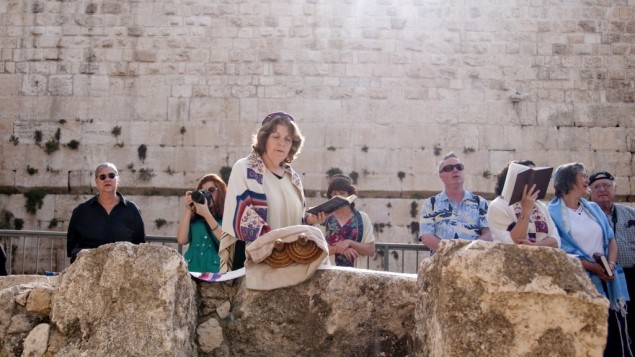
Every year, even if I celebrate it differently and even as my perceptions of Zionism and the Jewish State become evermore complicated, Yom HaAtzmaut always evokes in me a certain special nostalgia.
It was only once I was no longer forced to celebrate the holiday like I did in elementary and high school—with Israeli dancing, food, song, and blue-and-white cupcakes and cookies—that the holiday’s meaning began to change for me. I remember being taught as a child that we were celebrating the land. As such, my religious Zionist childhood was filled with children’s songs like “Eretz Yisrael Sheli Yafah ve-Gam Porahat” (“My Land of Israel is Beautiful and is Blooming”), “Eretz Zavat Halav u-Devash” (“A Land Flowing with Milk and Honey”), and the like. I received Israeli stamps and ate Israeli food, all to glorify working the land and building a blooming paradise out of the desert that was (and still is) much what would become today’s Israel.
It was only once I got to high school— and even more so once I got to college — that I began to turn away from the holiday upon realizing a key component of what we should be celebrating was missing: the people. I could celebrate the land, yes, but what about the people who live in the land?
Ultimately, for me to celebrate Yom HaAtzmaut as a religious event — to recite Hallel, omit penitential prayers, and otherwise mark Israeli Independence Day as a religiously significant holiday — it must be about not just the Land of Israel, but also the People, those who make it a (at least nominally) Jewish State. Right now, it is far from living up to that potential. Leaving aside the occupation for a minute, even all Israeli citizens aren’t considered equal within Israel.
I have so much trouble seeing Yom HaAtzmaut as a Jewish holiday when Israeli Jews are beaten then detained (without being allowed to seek medical advice) for passing a Torah scroll to the women’s section of the Western Wall, and where one very particular religious organization controls a space meant for all Jews. I can’t celebrate Yom HaAtzmaut in the same way after visiting Robinson’s Arch—the space made available for egalitarian Jews to pray—and getting the not-so-subtle message that we egalitarian Jews need to find a space on a platform much smaller than the rest of the Western Wall plaza and outside of its security if we want to pray in the way we feel most comfortable. Celebrating Yom HaAtzmaut is much harder with the knowledge that I, along with so many other Jews, am considered fundamentally unequal in the eyes of the Israeli government because of the political stronghold held by one particular perspective on Judaism who tries, and fails, to speak on behalf of all Jews everywhere.
I can try my best to distance myself from the government that continues to reinforce these and other policies that are not only detrimental to large segments of the Jewish Israeli population, but also the Israeli-Arab and the Palestinian populations under its purview. I can try to distance myself from the fact that I have no real connection to the land other than through artificial educational tools that fed me the rather false notions as a child that, even as a Jew living in the Diaspora, I had a stake in the State of Israel. As though the state were mine, too.
Sadly, I can’t see that anymore. Not because I don’t see the return to Zion as significant, even religiously; I do, which is why I still celebrate it as a religious holiday. Part of that religious significance, however, is how the day serves as a reminder that there are a great many people in Israel who have yet to enjoy the full freedoms that Yom HaAtzmaut—the Day of Independence—is supposed to mark. I want to celebrate a Yom HaAtzmaut for the people. I want to, one day, have a day to celebrate a more pluralistic space for Jews to gather and pray at the Western Wall. I want to be able celebrate the fact that my eventual children no longer need an Orthodox rabbi to certify their Jewishness. Some Yom HaAtzmaut, I want to celebrate the formation of a sovereign Palestinian state where Palestinians are able to live outside of the occupation.
One day, I want to celebrate all of that. For now, I can’t put back on the rose-colored lenses through which I saw the State of Israel as a child, where I was told the narrative of a place where Jews came and built a first-world country from the arid desert. In the meantime, I celebrated Yom HaAtzmaut this year by singing another Israeli song, “I Brought Peace”, about all that we have yet to accomplish, thus ensuring that my celebration is fueled by both the creation of the Jewish State and the need to ensure that those living there will, one day, be free from oppression. It will only be then — when Yom HaAtzmaut is a holiday for the people, not the land — that I can fully celebrate it.
Amram Altzman is a student at List College.

